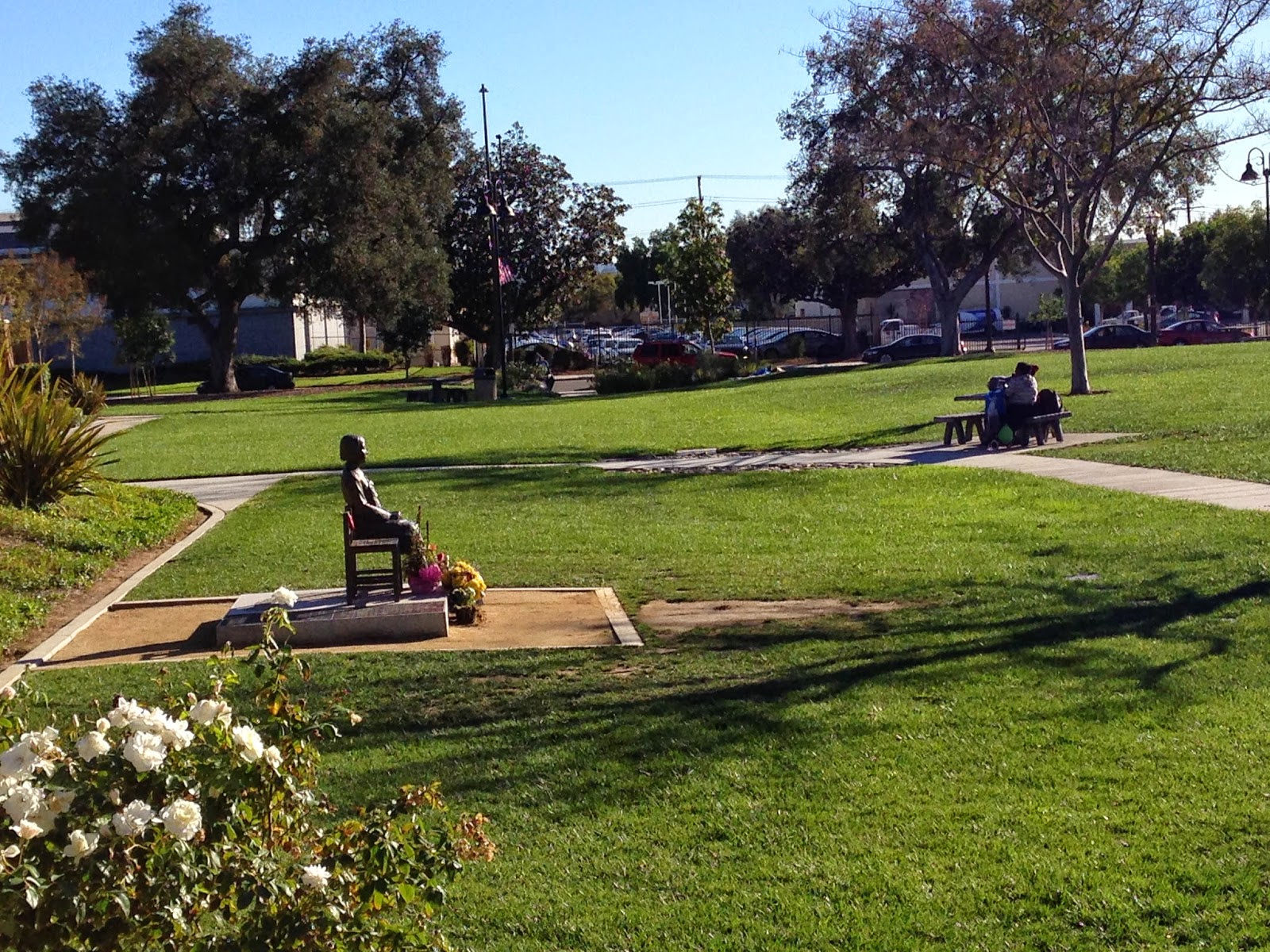In a way, last year can be named the year of comfort woman.
Asahi Shimbun apologized on its fault report about a man involved in recruiting
comfort woman at the time of war. Right wing people, including Prime Minister
Shinzo Abe, became furious about Asahi’s wrong handling of the scandal. Some
even say that there was no such thing as comfort woman. But there was no change
in view of the world that comfort woman was a wrong deed of wartime Japan.
Historical view of the Japanese is in short of something.
There is a statue of comfort woman in a park in City of
Glendale, CA. Beside the statue, there was an inscription. “I was a sex slave
of Japanese Military. Torn hair symbolizes the girl being snatched from her
home by the Imperial Japanese Army. Tight fists represent the girl’s firm
resolve for the deliverance of justice. Bare and unsettled feet represent
having been abandoned by the cold and unsympathetic world--,” it continues.
That is undoubtedly a strong protest against Japan.
Abe seems to want to change the inscription. “Imperial
Japanese Army did not snatch the girl from her home, because Asahi’s story
proved to be wrong,” he would say. But it does not make sense. Even though the
story might be wrong, comfort women really did exist in or around Japanese
military camps. But Abe insists on that the government was not involved in
comfort woman issue, saying nothing about Japanese private brokers.
Inappropriate dispute only erodes the standpoint of Japan, which a patriot
never does.
The Japanese should be more focused on another great
monument of protesting historical event a few miles away from the comfort woman
statue. That is called Japanese American National Museum in Little Tokyo in Los
Angeles. The exhibition is all about hardships of Japanese Americans. Main
theme is strong sentiment against internment policy taken by the government of
United States at the time of war. Comparing to the scale of the museum, protest
against Japan expressed by the statue of comfort woman was not so great as a
matter of fact.
It is the matter of how to dispute against historical event.
If the movement was strong and persuasive enough, the defendant will apologize.
U.S. government actually did it to Japanese Americans. If not, the movement
will just be a complaint.
However, there is one thing in the museum that Abe needs to
learn from. It was words of well-known Japanese American farmer in California,
David Mas Masumoto. “We live with ghosts or spirits all around us, they are a
sense of history that bonds all of us. Culture is alive and evolving…The facts
are not as important as the process of change and acceptance,” the exhibition
says. Abe needs to understand a historical change that Korean Peninsula is no
longer a colony of Japan.

No comments:
Post a Comment